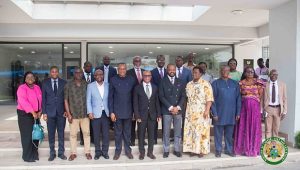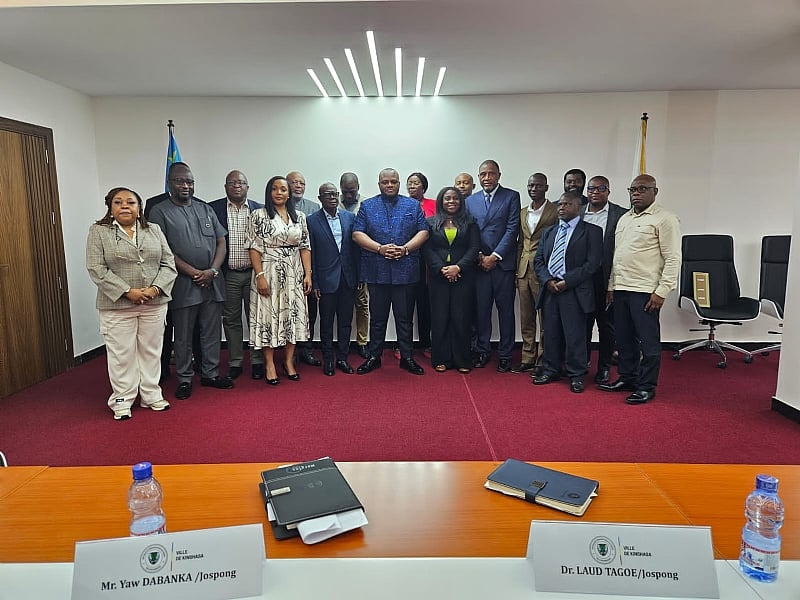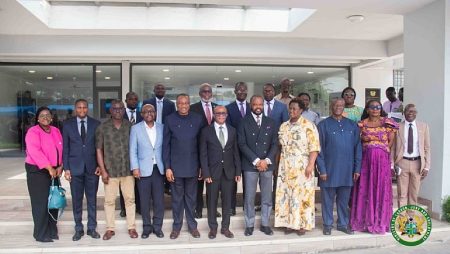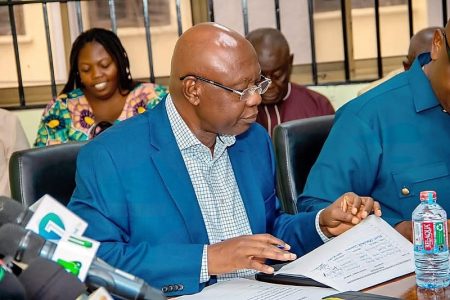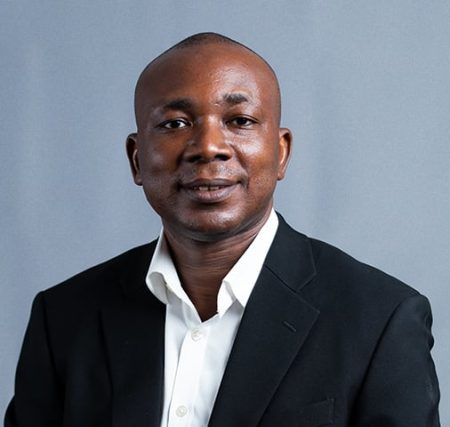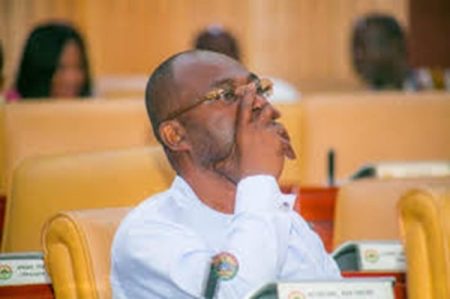Dr. Joseph Siaw Agyepong, a prominent figure in African entrepreneurship and the Executive Chairman of the Jospong Group of Companies, has delivered a compelling call to action, urging African investors and entrepreneurs to take the reins of the continent’s economic destiny. He argues that economic independence is not solely the responsibility of politicians but a crucial challenge that the business community must actively address. His vision centers on entrepreneurship, investment, robust intra-African trade, and the dismantling of barriers hindering movement and commerce within the continent. Dr. Agyepong believes that just as political leaders fought for political liberation, business leaders must now spearhead the fight for economic self-reliance, advocating for an Africa-led economic revolution.
The Jospong Group, particularly through its flagship subsidiary Zoomlion, exemplifies this vision through its expansion across the continent. Dr. Agyepong describes this expansion as “African unity through industrialisation,” a testament to the potential of homegrown solutions to address continental challenges. With operations spanning from Nigeria and the Democratic Republic of Congo to Ethiopia, Burkina Faso, Kenya, and The Gambia, the group showcases the practical application of cross-border collaboration and the impact of replicable business models. Their work, primarily in waste management, demonstrates how addressing fundamental societal needs can create a ripple effect of positive economic and social outcomes.
As a leading figure in Africa’s private sector, Dr. Agyepong champions the notion that Africa already possesses the essential ingredients for global competitiveness: vast natural resources, a large labor force, a favorable climate, and the potential for continental unity. He stresses the importance of leveraging these assets strategically to prevent exploitation and build a self-sufficient economic future. He advocates for regional economic integration and intra-African trade, emphasizing that the private sector, not political bodies, should drive this process. Dr. Agyepong believes that empowering African businesses and dismantling artificial trade barriers will unlock the continent’s true economic potential, fostering innovation and sustainable growth.
Furthermore, Dr. Agyepong highlights the significance of collaboration and knowledge sharing amongst African entrepreneurs. He envisions a future where African businesses work together to develop innovative solutions for the continent’s pressing challenges, leveraging their collective experience and expertise. This collaborative approach extends to international partnerships, as demonstrated by the Jospong Group’s recent MoU with South Korea’s Cheil Engineering Company Limited, focusing on circular economy initiatives such as textile waste recycling and renewable energy. These partnerships not only bring technical expertise but also facilitate the transfer of knowledge and the development of local capacity.
The call for economic independence also extends to a plea for supportive government policies and investment environments. Dr. Agyepong stresses the importance of nurturing indigenous businesses, providing them with the necessary tools to thrive and lead the continent’s economic renaissance. He believes that empowering local companies to address critical needs, such as waste management, creates a virtuous cycle of economic development, job creation, and improved public health. This focus on local capacity building aligns with his broader vision of African self-reliance and sustainable growth.
In essence, Dr. Agyepong’s message is a call to action for a paradigm shift in Africa’s economic trajectory. He advocates for a proactive, private sector-led approach to economic development, emphasizing collaboration, innovation, and the strategic utilization of Africa’s abundant resources. He champions a vision where African businesses, supported by enabling government policies, take ownership of the continent’s economic future, building a prosperous and sustainable Africa for generations to come. His work with the Jospong Group serves as a practical example of this philosophy, showcasing how entrepreneurial initiatives can address societal needs while simultaneously driving economic growth and promoting a more self-reliant Africa.


